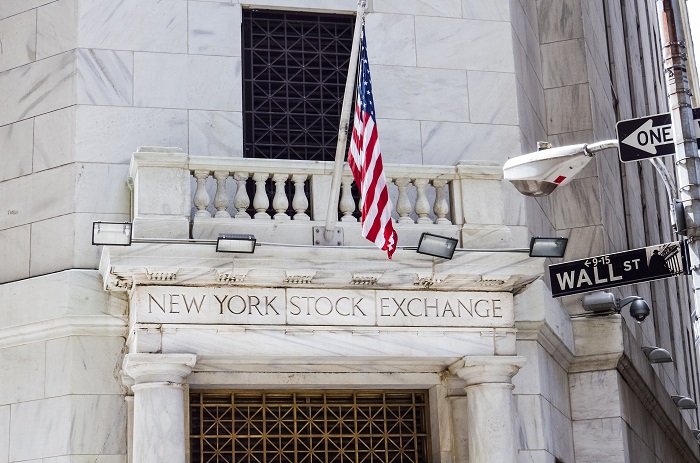economy news online
Wall Street stocks fell Wednesday after the Federal Reserve sketched out plans for additional interest rate hikes despite recent data showing a moderation in inflation. news online
Fed Chair Jerome Powell said he was encouraged by the latest consumer price data, but that the central bank’s policy was “still not restrictive enough” in light of too-high inflation.
The Dow Jones Industrial Average finished down 0.4 percent at 33,966.35.
The broad-based S&P 500 shed 0.6 percent lower to 3,995.32, while the tech-rich Nasdaq Composite Index declined 0.8 percent to 11,170.89.
The US central bank, as expected, announced it would lift the benchmark lending rate by a half percentage point, a smaller hike after four straight 0.75-point increases.

Powell said wage inflation was still too pronounced to permit a pivot on monetary policy.
While consumer inflation eased in October and November, Powell said “it will take substantially more evidence to give confidence that inflation is on a sustained downward path.”
The Fed’s announcement “certainly did not live up to the market’s more hopeful expectations that the Fed might throw the market a carrot,” said Briefing.com analyst Patrick O’Hare, who characterized the thrust of the central bank’s announcements as “hawkish-minded.”
Among individual companies, Delta Air Lines rose 2.8 percent as it raised its fourth-quarter financial forecasts and predicted solid earnings growth in 2023.
“Demand for air travel remains robust as we exit the year and Delta’s momentum is building,” said Chief Executive Ed Bastian.
Charter Communications sank 16.4 percent after the company’s plan to significantly increase capital spending raised doubts about its free cash position.
jmb/md
© Agence France-Presse. All rights are reserved.
economy news online
Notes from APS Radio News
Either just before or just after the “pandemic” became a new media thing, a number of the world’s major central banks increased their holdings dramatically and substantially.
For example, between the early part of March 2020 until May of this year, the US Federal Reserve increased its holdings by about 4.8 trillion dollars, by purchasing billions of dollars’ worth of Treasury bonds and corporation bonds.
For its part, from the latter part of February until earlier this year, the European Central Bank purchased trillions of euros of corporation and government bonds.
And the Bank of Japan purchased a few trillion dollars’ of government and corporation bonds during that period.
A number of economists have said that the combination of lockdowns and restrictions, reportedly imposed over a virus that has had a recovery rate of 99% for most age groups, and massive infusions of moeny, both on the fiscal and the monetary side, led to noticeably higher rates of inflation.
They say that, even before sanctions imposed over Russia’s invastion of Ukraine, lockdowns and restrictions led to shortages of various goods and services.


